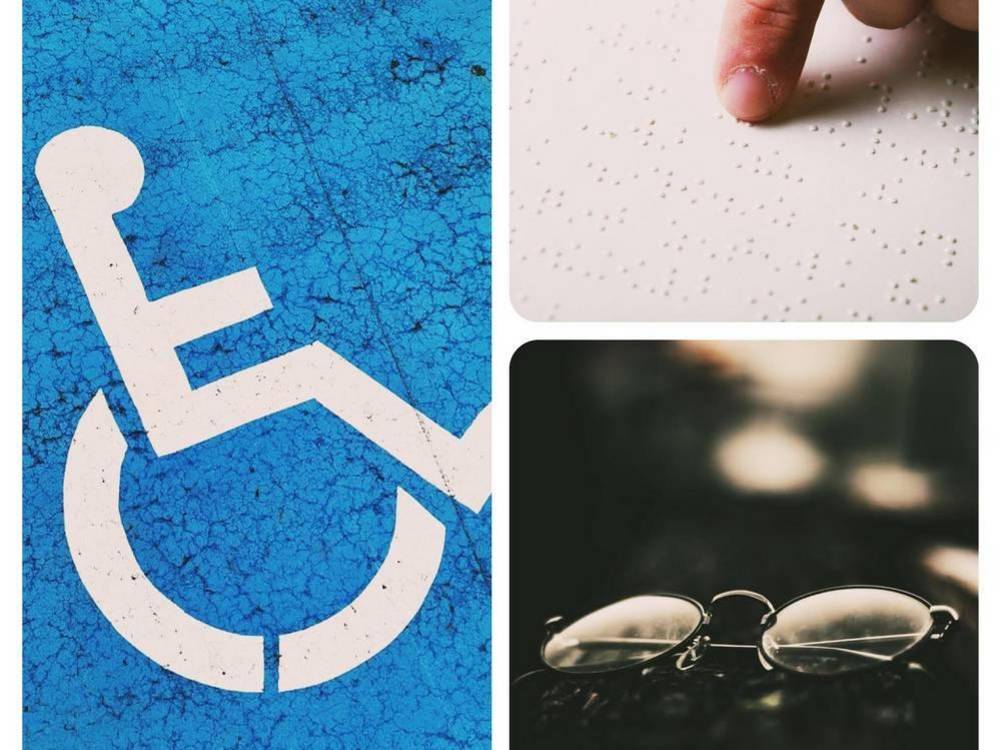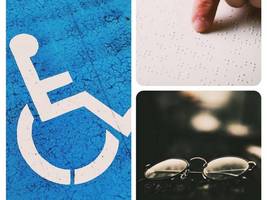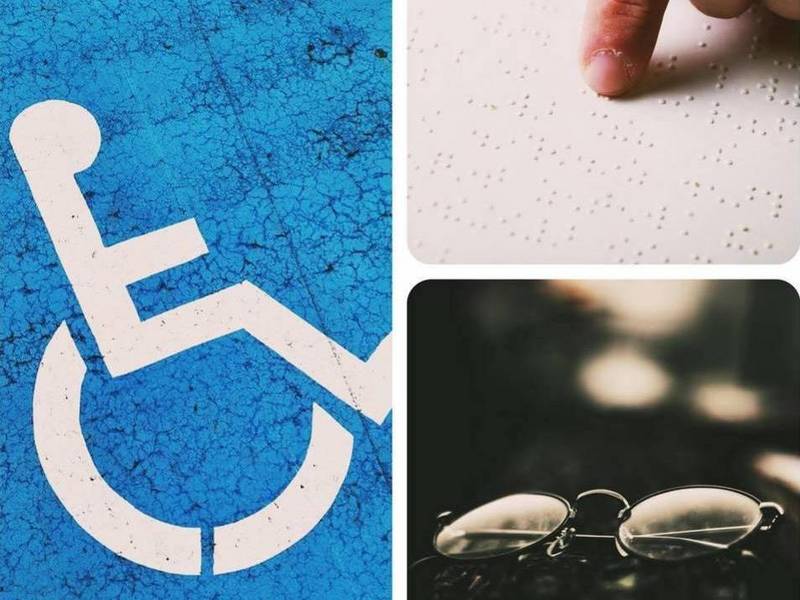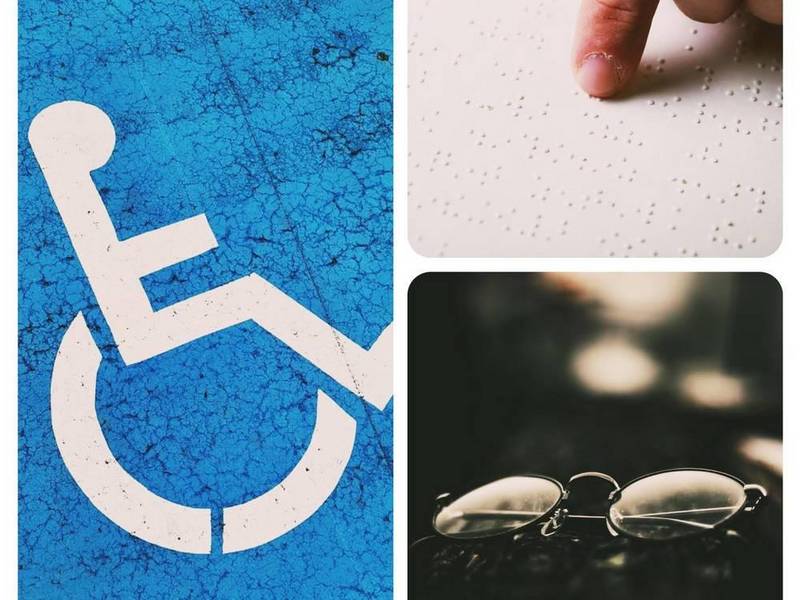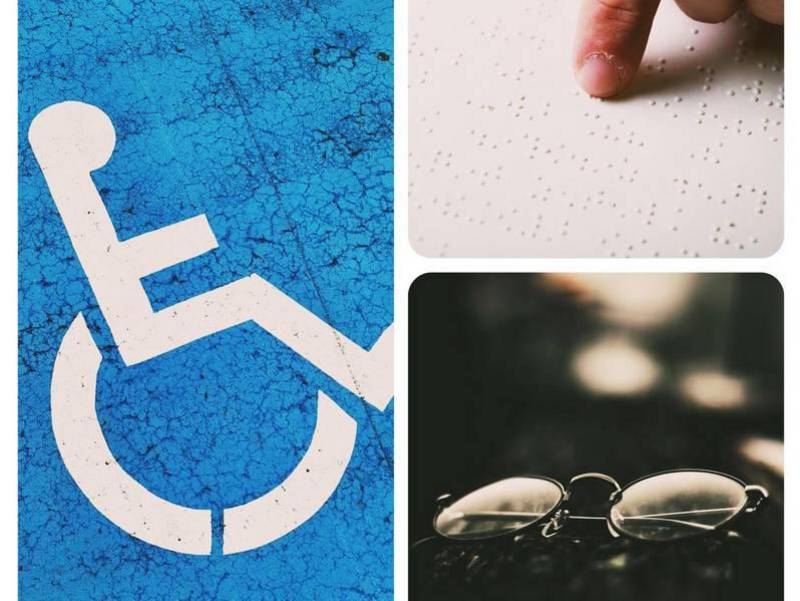From April to June 2023, the Human Rights Ombudsman of the Republic of Slovenia (Ombudsman) considered the various complaints of individuals who contacted him in relation to the safeguarding of human rights of persons with disabilities. He assisted the complainants by providing clarifications on their rights and the legislation, he made recommendations to the competent bodies on how to facilitate the enforcement of rights and he highlighted the rights of persons with disabilities in public.
Ombudsman published the annual report for 2022
In June, the Ombudsman, Mr Peter Svetina, published the 28th Annual Report of the Human Rights Ombudsman of the Republic of Slovenia and the 15th National Preventive Mechanism Report and delivered it to Ms Urška Klakočar Zupančič, the Chair of the National Assembly of the Republic of Slovenia, Ms Nataša Pirc Musar, the President of the Republic of Slovenia, and Mr Robert Golob, the Prime Minister. When presenting the report, the Ombudsman specifically underlined his recommendation to pay special attention to the measures for bolstering the rights of persons with disabilities and their dignity in general and in specific settings where deinstitutionalisation projects have been planned. (Read more)
Inadequate substantiation of decisions and lengthy decision-making procedure of the Slovenian Pension and Disability Insurance Institute (ZPIZ)
In her complaint addressed to the Ombudsman, the complainant drew attention to the lengthy and non-transparent procedures for claiming disability insurance benefits from the Slovenian Pension and Disability Insurance Institute (ZPIZ). The Ombudsman examined the documentation submitted, which showed that ZPIZ failed to take a stance on the physician’s proposal to initiate the procedure for claiming disability insurance benefits as well as on several documents of the University Rehabilitation Institute of the Republic of Slovenia, and so it took six months to decide on the proposal at first instance.
Therefore, the Ombudsman contacted ZPIZ and expressed the expectation for the appeal body to issue the decision within a statutory deadline and to carefully examine the complainant’s appeal and provide a substantiated response to it by means of a decision on the appeal in accordance with the applicable regulations. Afterwards, the Ombudsman was acquainted with ZPIZ’s decision upholding the appeal. Notwithstanding this, the Ombudsman considered the complaint well-founded. Based on all the documentation received, the Ombudsman found that, although the second instance decision of ZPIZ was issued “roughly” within the statutory four-month deadline (probably also due to the Ombudsman’s intervention), the fact remains that the four-month deadline for the issuance of the decision was exceeded in the first instance decision-making procedure. The Ombudsman further found that the second-instance decision of ZPIZ lacked proper substantiation, referring merely to an opinion of the second-instance expert committee which, however, is not an integral part of the decision. The ombudsman has warned ZPIZ on several occasions of the necessity to substantiate their decisions appropriately. Unfortunately, no changes have been observed in practice in this regard. (Read more)
Issue regarding the necessity to produce evidence in the procedures aimed at claiming disability insurance rights
The Ombudsman was contacted by a complainant owing to the lengthy decision-making process of ZPIZ regarding his application to be granted the category I disability status and disability pension.
In the context of addressing this complaint, the Ombudsman passed the opinion that, where possible, in declaratory procedures, ZPIZ could, instead of evidence produced by an expert body, also consider evidence produced by an expert witness or otherwise thus reducing the time required to decide on disability insurance rights. ZPIZ dismissed the Ombudsman’s position. However, because ZPIZ has not exhausted all possibilities to reduce the backlogs in claiming the disability insurance rights, the Ombudsman assessed they do not act in line with the principles of sound administration. (Read more)
Unacceptably lengthy decision-making procedures by the Ministry of Labour, Family, Social Affairs and Equal Opportunities (MDDSZ)
The complainant informed the Ombudsman that, in the context of exercising the right to personal assistance, she filed an appeal against the decision of the competent social work centre as early as on 13 May 2022, while the Ministry of Labour, Family, Social Affairs and Equal Opportunities (MDDSZ) did not decide on the appeal until 10 March 2023. The Ombudsman considered the complaint to be well-founded, as it was inadmissible for the Ministry to take ten months to decide on a remedy, meaning it would take even longer to decide on the right itself. In response to the Ombudsman’s request on the measures to be adopted in order to address the lengthy decision-making process, the Ministry assured that they had already taken an active approach regarding the adoption of measures to reduce the lengthy decision-making processes. The Ombudsman will continue to underline the necessity for urgent measures in this area, as warnings regarding the lengthy decision-making procedures on the use of legal remedies constitute an unacceptable established practice. (Read more)
Individuals should be enabled to take the matura examination with adjustments to take account of their deficits, handicaps or disabilities
Based on a complaint received, the Ombudsman drew the attention of the Ministry of Education and the National Committee for General Matura to the situation of the complainant, a student with difficulties in reading black letters on white paper, who highlighted the difficulties in making adjustments to the matura examination. The Ombudsman proposed that the student in question be enabled to have the necessary adjustments carried out in the taking of the matura examination this year. In the Ombudsman’s view, individuals should be allowed to take the matura examination with adjustments to take account of their deficits, handicaps or disabilities. His proposal was dismissed.
Representatives of the National Preventive Mechanism paid visits to numerous care and work centres
From April to June, the members of the National Preventive Mechanism[1] paid visits to Postojna Care and Work Centre, Ajdovščina – Vipava Care and Work Centre, Koper Care and Work Centre, Šentjurv Care and Work Centre, SAŠA Care and Work Centre – Mozirje residential units, and Nova Gorica Care and Work Centre. Some of these visits were unannounced. In the care and work centres, they held long interviews with the staff about how their work with inmates takes place, with the inmates also showing them their residential premises and introduced their life within the residential group.
Ombudsman on personal assistance at the Commission of the National Assembly of the Republic of Slovenia
On 15 June 2023, at the 8th meeting of the Commission for Petitions, Human Rights and Equal Opportunities, where the main focus was on the issue of personal assistance, the Ombudsman, Peter Svetina, presented some of the findings of the Ombudsman’s office on the issue of reassessing the eligibility for personal assistance. In his introductory remarks, he said: “With the Personal Assistance Act, which came into force in 2019, Slovenia has taken an important step towards a more active inclusion of people with disabilities in society. Unfortunately, not long after that, our Office started receiving numerous complaints, mainly concerning the non-recognition of certain costs, lengthy decision-making procedures at the second instance and the reduction of the scope of the already recognised right to personal assistance without the possibility of recourse to a legal remedy.” He added that he repeatedly highlighted the issue of the lack of clarity of the personal assistance criteria and eligibility criteria. According to him, the reassessment of eligibility for personal assistance is equally disputable. (Read more)
Ombudsman on the personal assistance funding at the round table of the Non-discrimination Movement
On 22 June 2023, the Ombudsman, Peter Svetina, participated in a round table discussion entitled “Lost Article 19a or Why People with Disabilities are Being Deprived of their Rights”, organised by the Non-Discrimination Movement. The Ombudsman explained, inter alia, that he expects that once the legal reform is completed, the system will be put in place that will enable all individuals with comparable needs to have access to comparable assistance. (Read more)
The Deputy Ombudsman reiterated the request for the regulation of the area involving the enforcement of the constitutional right to sign language and the tactile signing in full
On 8 June 2023, the Deputy Ombudsman, Dijana Možina Zupanc, attended a meeting of the Commission for Petitions, Human Rights and Equal Opportunities, where they discussed the exercise of the rights under Article 62a of the Constitution regarding the use and development of sign language and tactile signing. She stressed that the Ombudsman had already pointed out that the entry in the Constitution was important, yet it was only a first step towards the full exercise of the rights of the deaf and deaf-blind; the key is to ensure that these rights are exercised in practice. Therefore, he has since then recommended to the government to draw up by-laws as soon as possible and to transform a constitutionally protected right from a dead letter on paper into an active right. On behalf of the Ombudsman’s office, the Deputy Ombudsman expressed her regret that no major advances have been made in the development of the Slovene sign language and tactile signing in more than two years. (Read more)
Ombudsman to warn again of the breaches of the rights in social care centres
At the ceremony to mark the 70th anniversary of the Lukavci Home in the Ljutomer Cultural Centre, the Ombudsman, Peter Svetina, emphasised that it was impossible to overlook all that has been done over the past 70 years for the people whose life has brought them to the Lukavci Home, including the commitment of the management and the dedication of the staff to provide them with a decent life in accordance with their means. He was also critical of the decision-makers: “It is also impossible to overlook the far too slow process of solving the issues of placing these people in institutions following the decisions of the courts and of the development of deinstitutionalisation in Slovenia. (Read more)
Ombudsman reiterated the request to deliver information in a comprehensible manner
On the International Easy-to-Read Day, its ambassador, the Human Rights Ombudsman, Peter Svetina, again called on the state administrative and local self-governing bodies as well as various agencies to prepare texts as understandably as possible when communicating with citizens, and to dedicate special attention to the accessibility of information in an easy-to-read form. The latter is composed of information that is easy to find, easy to read and easy to understand. (Read more)
For a comprehensive and quality inclusion of tetraplegics and paraplegics in all spheres of society
On the eve of the Slovenian Day of Paraplegics and Tetraplegics on 16 April, the Ombudsman, Peter Svetina, extended his sincere congratulations to the Slovenian Paraplegic Association, which has been protecting and promoting the rights and interests of paraplegics and tetraplegics at a local, national and international level for more than 50 years. In their capacity as the only national human rights institution in the country, the Ombudsman office also advocates a comprehensive and quality inclusion of tetraplegics and paraplegics in all spheres of society, under the same conditions as other individuals. We have been continuously warning about the accessibility of public institutions, including schools, municipality buildings, courts and administrative units for people with movement disabilities and about the construction of appropriate public infrastructure. (Read more)
Informing on the possibility of participating in reviews of the implementation of the Convention on the Rights of Persons with Disabilities
The Ombudsman’s Centre for Human Rights, which also carries out information tasks, has informed the disabled people’s organisations and other non-governmental organisations working in the field of human rights that, at the September meeting of the working group, the UN Committee on the Rights of Persons with Disabilities (Committee) will accept the what is known as the list of issues before the reporting for the Q2–Q4 periodic report for Slovenia takes place. On the basis of these identified issues, Slovenia is expected to prepare a report within one year, which will serve as a basis for the Committee’s review of the implementation of the Convention on the Rights of Persons with Disabilities (CRPD) in Slovenia. The Committee invited the disabled people’s organisations and civil society organisations to be involved in the process of reviewing State parties’ reports. They can provide information on the status of implementing the rights in Slovenia in the following ways: By submitting a written report or by attending the meeting (briefing) of the working group which, for Slovenia, will take place on 12 September at the Palais des Nations in Geneva.
Review of the previous activities of the Ombudsman in the area of the rights of persons with disabilities (by clicking the links below, you will be taken to the relevant publication sites):
- October–December 2022
[1] The National Prevention Mechanism (which was put in place within the Ombudsman’s Office as required by the Optional Protocol to the Convention against Torture and Other Cruel, Inhuman or Degrading Treatment or Punishment) is tasked with visiting places of deprivation of liberty in the country and verifying how people deprived of liberty are treated, with a view to strengthening their protection against torture and other cruel, inhuman or degrading treatment or punishment.
